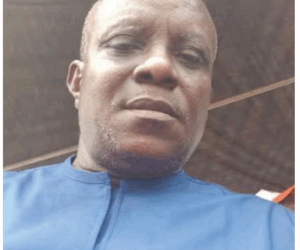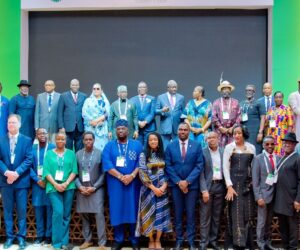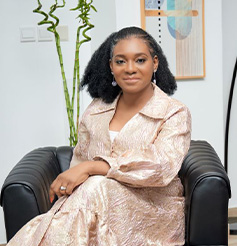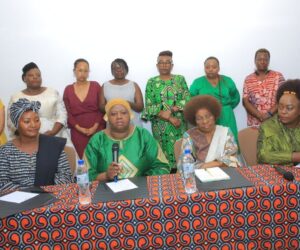2
On a hot Friday afternoon in Wuse 2, Cynthia, a 32-year-old banker, rushes out of the office still in her heels, clutching her handbag alongside a disposable bag where she keeps her slippers and balancing a brown envelope. She isn’t headed home but to a prayer house in Gwarimpa where she has been told that the “delay in marriage” will be broken. Tomorrow she has a wedding to attend, and she dreads the familiar questions from aunties and old schoolmates: “When are we coming to eat your jolof rice?”
For Cynthia and many single ladies in Abuja, life is a delicate balancing act — hustling to survive in one of the most expensive cities in Nigeria while racing against the invisible yet suffocating “marriage clock.”
The Hustle: Life on High Rent, High Bills
Abuja is Nigeria’s capital, but it is also one of its most unforgiving cities. The average one-bedroom flat in decent districts like Wuse, Garki, or Gwarimpa costs between ₦1.2 million and ₦2 million per year, usually paid upfront. For young single women earning between ₦150,000 and ₦300,000 monthly, this means finding extra income or sharing apartments with friends.
Many single ladies here live double lives: corporate professionals by day, side hustlers by night. Fashion, makeup, food delivery, online thrift sales, and weekend catering are common gigs that supplement salaries. Ngozi, a civil servant in her late twenties, puts it bluntly: “Your salary can’t carry you in this city. If you don’t have side hustle, you will drown.”
But even with the hustle, Abuja demands “packaging.” From Brazilian wigs to designer handbags, looking the part is part of survival. Many women confess they dress for opportunities — business, promotions, or social connections. One 29-year-old entrepreneur in Apo said: “If you look like your struggle, Abuja will finish you. You have to present yourself as though you’ve already arrived.” To them pretence and acting are parts of daily routine. This pressure comes at a cost: mounting debts, stress, and a constant need to stay ahead of appearances.
The Marriage Clock Ticking
Beyond bills and hustle, single ladies in Abuja face another silent pressure: time. In Nigerian culture, particularly among the middle class, a woman above 30 is often viewed as “overdue” for marriage. Parents call, pastors pray, and even friends tease — often without realizing the weight of those words. The “marriage clock” ticks louder with each wedding invitation. Every weekend in Abuja is a parade of lavish ceremonies in hotels, gardens, and churches. For single ladies, it’s both a celebration and a reminder. One 35-year-old consultant confessed: “I have stopped attending weddings. Every time I go, I come back depressed.”
This pressure drives many into prayer camps, matchmaking attempts, and sometimes unhealthy relationships just to prove they are not “left behind.” Some go as far as fasting weekly for a spouse, attending “singles nights,” or meeting prophets who promise breakthroughs in exchange for “seeds.”
Double Face of Dating in Abuja
Finding genuine love in Abuja is another challenge. The city is a hub for politicians, contractors, expatriates, and hustlers of all shades. Many single ladies say men often approach them with assumptions: either they are “too independent” to be submissive, or they are “looking for money.” Some relationships are openly transactional. In clubs at Wuse and Asokoro lounges, it is common to see young women in their twenties and thirties with older, wealthier men. Others struggle to balance expectations with reality. A tech worker in Jabi noted: “A guy may like you but tell you straight up he cannot handle your lifestyle or your financial needs. Others just want to have fun. So where do you find the serious ones?”
Meanwhile, men complain, too. Some Abuja bachelors argue that many single ladies are “too materialistic” or “too exposed,” creating a trust gap that complicates genuine courtship. This back-and-forth leaves many single ladies stuck in a cycle of short relationships, heartbreak, and renewed pressure from society.
Stress and the Emotional Toll
Behind the glamorous Instagram feeds and glowing selfies, many Abuja single ladies fight silent battles. Anxiety about aging without marriage, fear of making wrong choices, and the burden of carrying both financial and social expectations take a toll. Therapists in Abuja say a rising number of single women now seek counseling for depression and loneliness. Social media adds fuel to the fire — endless images of engagements, baby showers, and “couple goals” often deepen feelings of inadequacy.
One single lady summed it up: “You’re hustling to pay bills, trying to look good for opportunities, dodging family pressure, then you also have to worry about love. Sometimes it feels like war on all sides.”
Redefining Singlehood
Yet, the story isn’t only one of pressure and pain. Increasingly, Abuja single ladies are redefining what it means to be unmarried. Many focus on career growth, owning property, traveling, and living on their own terms. Some deliberately reject the idea of rushing into marriage.
Adaeze, a 34-year-old NGO worker, says: “I would rather be single than marry the wrong man. I’ve seen too many women suffer in marriage. For me, peace is better than title.”
Others are building strong support networks — women’s groups, book clubs, fitness circles, and business cooperatives — where they find solidarity and purpose beyond marital status. Religious communities also offer platforms for single women to serve, lead, and find fulfillment. While pastors may still emphasize marriage, many single ladies use faith as a source of strength rather than a deadline.
Yet the life of a single lady in Abuja is a paradox: freedom and independence on one hand, cultural and financial pressures on the other. They are caught between the hustle for survival and the ticking marriage clock society places on them.
Yet their resilience shines through. They build careers, sustain families, and maintain dignity in a city that demands too much. In Cynthia’s words, after another long week: “I won’t lie, it is hard. But every day I remind myself that my worth is not just in marriage. If the right man comes, fine. If not, I still have a life to live because I know my case is different.”








